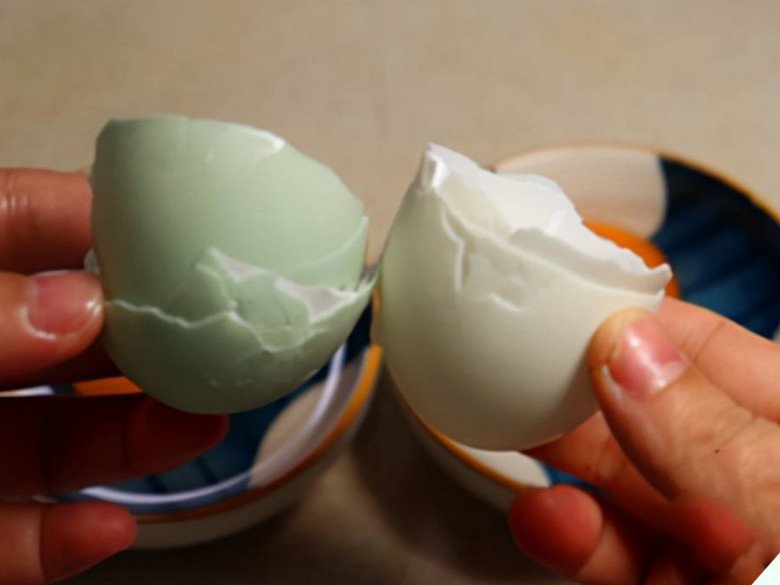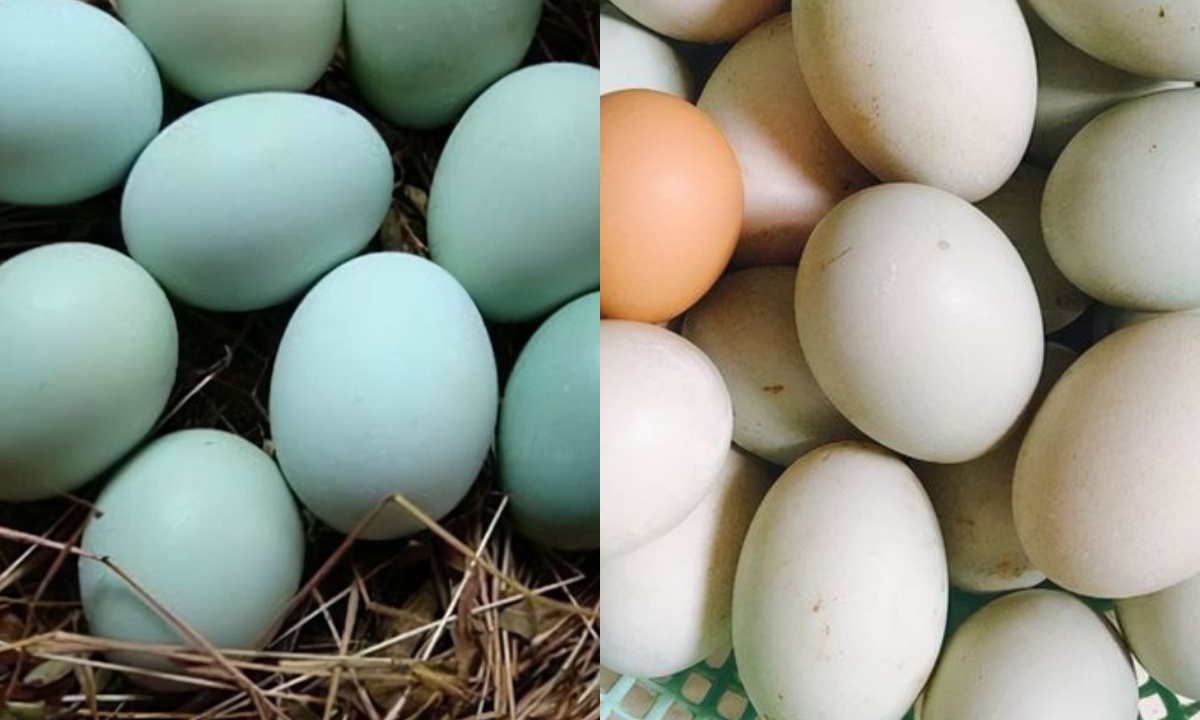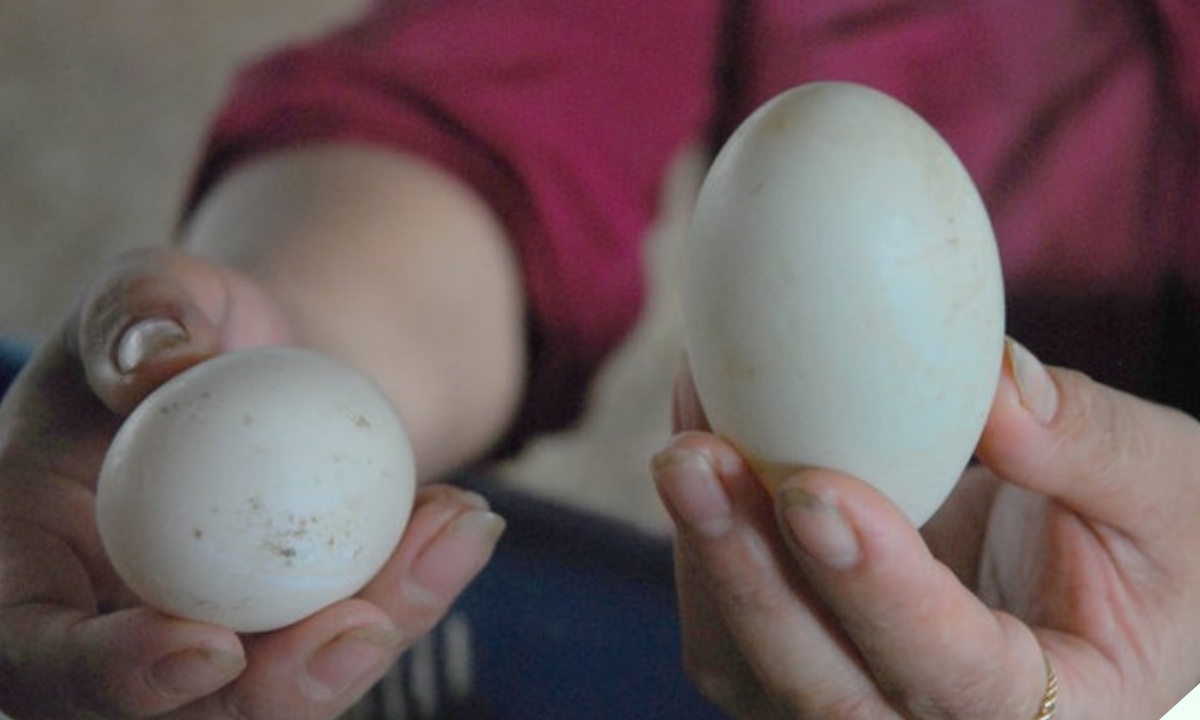
Growing up, my family had a daily diet of duck eggs. My mother would explain that we had a few ducks that we raised for their eggs, which we either ate or sold at the market. Over time, we had more eggs than we could consume, so I would help my mother collect and sell them at the local market.
However, our duck eggs were not as popular as those of our neighbor’s. Her basket would be swarmed with customers, while ours was often overlooked. Upon observation, I noticed a distinct difference: their eggs were white, while ours were green. When I asked my mother about this, she was unsure of the reason.
Curious, I consulted my teacher, who enlightened me. She explained that both types of eggs are nutritious, and the preference for white-shelled eggs is merely a consumer habit. Most people associate white shells with better-tasting eggs.

So, which is tastier: green or white-shelled duck eggs?
In reality, duck eggs can vary in color, and this is primarily due to genetics, environment, farming practices, and diet.
If you pay close attention, you’ll notice that this color variation is not unique to duck eggs; even chicken eggs come in different shades of brown, reddish-brown, and white.
Moreover, both types of duck eggs are rich in protein, lipids, calcium, iron, and other minerals. Including them in your diet is beneficial to your health.
However, if I had to choose between green and white-shelled duck eggs, I’d give a slight edge to the green-shelled variety for the following reasons:
1. Egg Shell Thickness

White-shelled duck eggs: These eggs have thinner shells and are more fragile. You can feel this by gently tapping on the shell or comparing the weight of two similarly sized eggs of different colors.
Green-shelled duck eggs: The shells of green-shelled duck eggs are thicker. This makes them easier to store and transport, reducing the risk of breakage.
2. Nutritional Content

As mentioned, both types of duck eggs are nutrient-dense. However, green-shelled duck eggs tend to have higher levels of protein, acids, and zinc. Conversely, they contain lower amounts of selenium and lysine compared to their white-shelled counterparts.
Although the difference is not significant, when weighed against each other, green-shelled duck eggs slightly edge out the competition.
3. Culinary Uses

Duck eggs are commonly used to make salted eggs, a preservation method that also enhances their flavor and opens up various culinary possibilities.
For salted duck eggs, green-shelled eggs are the ideal choice due to their thicker shells, which make them less prone to breakage during the preservation process.
4. Storage
Green-shelled duck eggs have thicker shells and can be stored at temperatures between 2-5°C (35.6-41°F). They can last up to 40 days under these conditions. On the other hand, white-shelled duck eggs have thinner shells and require higher storage temperatures, resulting in a shorter shelf life.

In summary, both green and white-shelled duck eggs are nutritious, and your choice should depend on your intended use. Additionally, when purchasing duck eggs, consider the following tips to ensure you get the freshest and best-quality eggs:
1. Listen for Sounds
Hold the duck egg close to your ear and give it a gentle shake. If you don’t hear any sound, that’s a sign of a fresh egg. If you detect even a faint noise, the egg may be older and have a higher chance of spoilage.

2. Inspect the Shell
A simple yet effective way to assess egg freshness is to touch the shell. Fresh eggs usually have a slightly rough surface with a powdery white coating. If the shell feels too smooth, it may be a cause for concern.
Duck eggs are easy to store, and with proper care, they can last a long time. At room temperature, they can be safely kept for 7-10 days. For extended storage, place them in the refrigerator’s cooler compartment, ensuring that the smaller end faces downward.
Most importantly, always wash the eggs thoroughly to remove any dirt or bacteria, ensuring their longevity and safety for consumption.
“Unraveling the Mystery: Distinguishing Between Free-Range and Factory-Farmed Bleached Eggs”
The market is flooded with cheap, seemingly free-range chicken eggs, but beware – these are often industrial eggs chemically treated to appear ‘whiter’ and thus, healthier. This practice is dangerous and poses a serious health risk to consumers. To help you differentiate between these two types of eggs, we’ve compiled some handy tips and tricks.



































